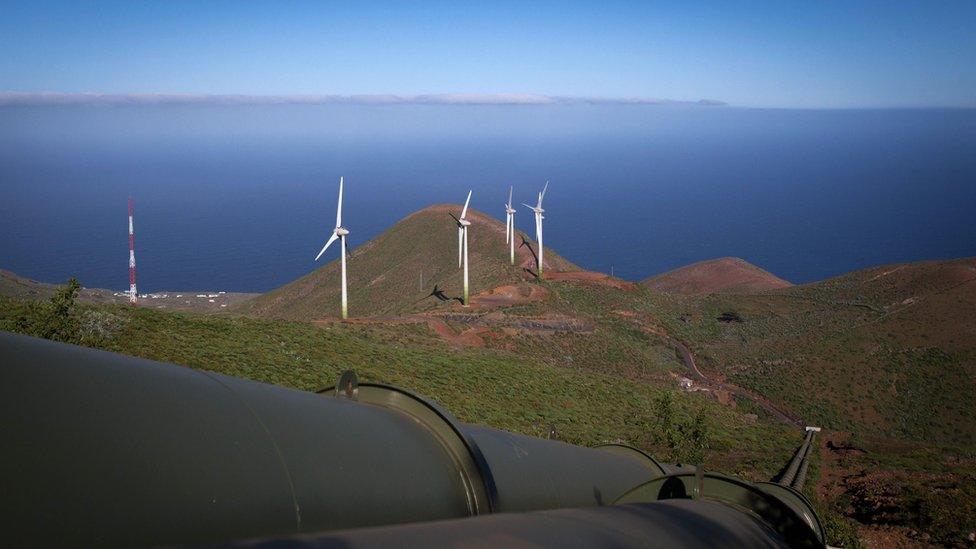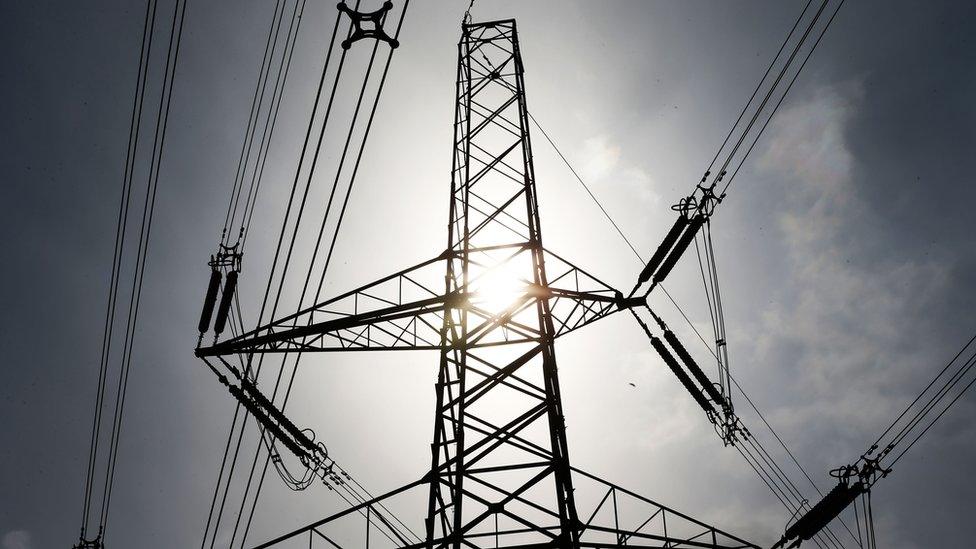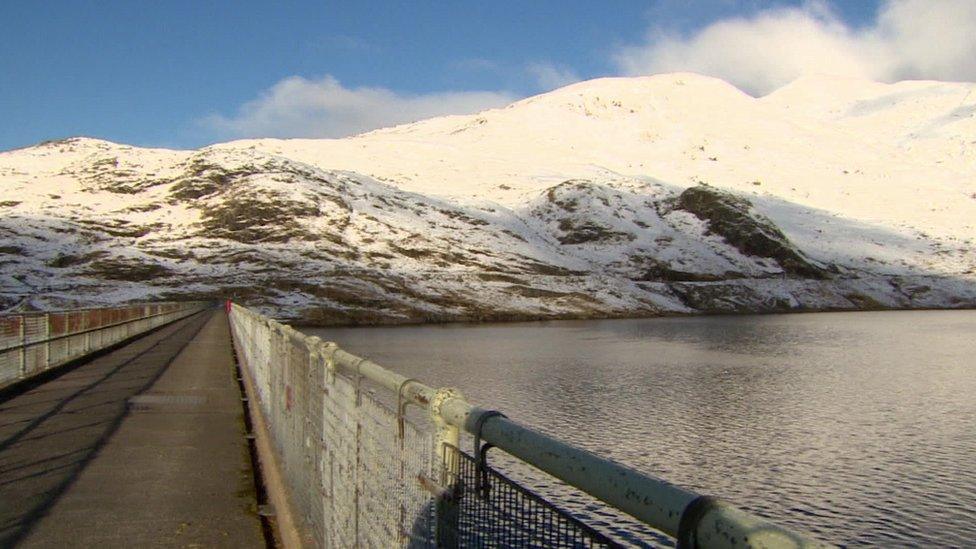Energy subsidies should focus on storage and cutting demand, MPs say
- Published

Energy storage schemes include pumping water uphill and releasing it through turbines when power is needed
Subsidies to reduce the risk of blackouts must focus on energy storage schemes and cutting demand instead of "dirty diesel", MPs have urged.
Currently, power providers are paid to ensure electricity is available to the grid to meet future demand.
The Energy and Climate Change Committee said current policy favoured diesel over technology that reduces demand.
But a government spokesman said demand reduction technology couldn't yet be trusted to deliver back-up capacity.
How can we store more energy from the sun and the wind?
Is the era of free electricity approaching?
The government's capacity market, external policy provides payments to power providers to encourage investment in new electricity capacity - or to keep remaining capacity available - to ensure energy is available when needed.
Under the policy, schemes for energy storage qualify for four-year contracts, while those that pay large users of electricity to reduce consumption at times of peak demand get one-year contracts.
Subsidy system
This is compared to 15-year contracts for new fossil fuel generation.
The committee said the government should redesign the capacity market to encourage energy storage, which ranges from lithium batteries to pumping water uphill and releasing it through turbines when power is needed.
This technology could save billions of pounds for consumers, it said.
Ministers should also consider a subsidy system to speed up the deployment of storage, given its importance for storing and using power from renewable energy to make the most of the clean technology.
They should commit to making the UK a world leader in storage and set a procurement target for 2020, the committee said.
However, a spokesman from the Department for Business, Energy and Industrial Strategy said: "The Capacity Market ensures that our families have a secure energy supply at a fair price that they can rely on.
"We are fully committed to a low carbon energy future and the potential benefits that new technologies such as storage could bring to this.
"However, for the Capacity Market to work effectively it relies on flexible technology that is ready to be deployed"

'Smart' technology to cut demand
Roger Harrabin, BBC environment analyst

MPs said the government should focus on cutting demand for energy
Keeping fossil fuel power stations on standby is the usual way of meeting peak electricity demand.
An alternative is emerging, using smart technology to reduce demand for energy rather than increasing supply.
The latest invention will allow messages to be sent on the electricity grid. These will be interpreted by a special plug on your hot water tank to heat water when energy is cheap in early afternoon, and avoid using peak power at tea time.
Gathering the many households needed to make smart technology work is costly. And the government's minimum cost plans for back-up power favour fossil fuels.
The MPs say that's a false economy. They say a smart energy revolution will save more money and emissions in the long run.

'Get a move on'
There should also be a clear signal that "demand-side response" systems, which encourage electricity users to reduce consumption at certain times, will be bought as a strongly preferred alternative to diesel generation plants.
Committee chairman Angus MacNeil said: "The government must get a move on and encourage the energy market to embrace smart technological solutions like energy storage and demand side response.
"There is an incredible opportunity for the UK to become a world leader in these technologies.
"Yet our current energy security subsidies favour dirty diesel generation over smart new clean tech solutions."
With the merger of the Department of Energy and Climate Change with the Business Department, the report is the last from the ECC Committee, whose work will be taken over by the Business, Energy and Industrial Strategy Committee.
- Published3 March 2015

- Published29 February 2016

- Published4 December 2015
